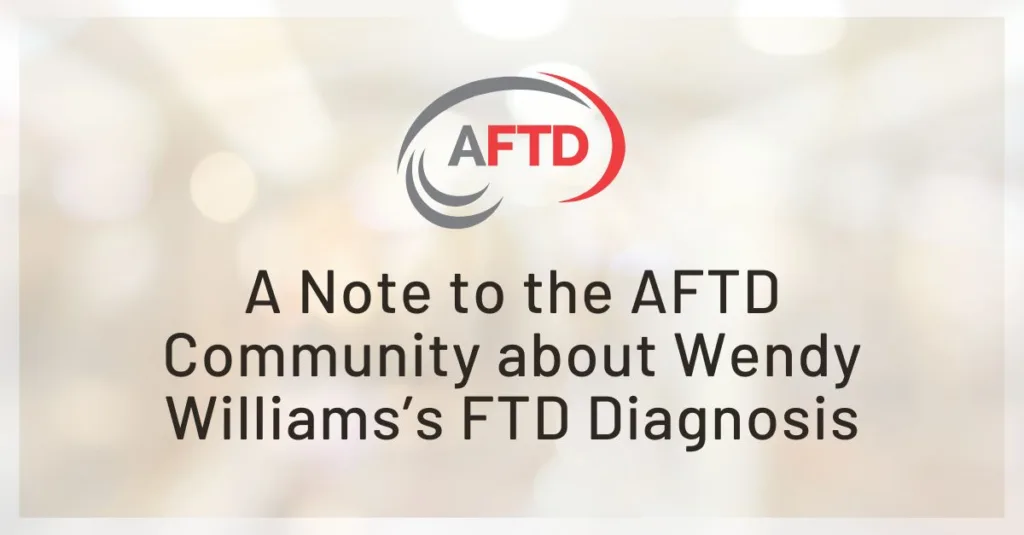A Note to the AFTD Community about Wendy Williams’s FTD Diagnosis

Since last week’s announcement that the former talk show host Wendy Williams has been diagnosed with FTD, combined with the premiere of the docuseries Where Is Wendy Williams? over the weekend, many members of AFTD’s community have reached out to express the raw emotions that have been reawakened within them, along with empathy and concern for Ms. Williams.
Just as when Bruce Willis’s family came forward with the actor’s FTD diagnosis last February, Ms. Williams’s diagnosis has sparked a flood of media coverage. And when FTD is so prominently featured in the news and on social media, persons diagnosed and current and former care partners may feel overwhelmed. Not only is FTD a constant presence in their own homes, it is now reflected back to them on their TVs, phones, and other devices.
Based on feedback AFTD has received, Where Is Wendy Williams? has proven to be particularly hard to process. AFTD acknowledges that the series is often difficult to watch, and that its depiction of apparent FTD symptoms and the Williams family’s disagreements over Ms. Williams’s condition and care can be triggering for our community. AFTD had no involvement with any element of the documentary (or of Ms. Williams’s FTD announcement) and advocates for everyone living with an FTD diagnosis to be shown respect and receive compassionate care. We also want our community to know that we have reached out to Ms. Williams’s representation to offer our support and resources. At this time, AFTD staff have not spoken with Ms. Williams or her caregivers.
FTD (frontotemporal dementia or frontotemporal degeneration) is the most common dementia for people under 60 and is often misdiagnosed as depression, Alzheimer’s or Parkinson’s disease, or a psychiatric condition. It currently takes 3.6 years on average to get an accurate diagnosis.
Since the announcement last Thursday, the AFTD HelpLine has seen a marked increase in calls and emails, which we attribute to the rise in awareness that the news has sparked. Widespread awareness is the crucial first step in creating a future free of FTD, and we are grateful for Ms. Williams’s care team’s announcement.
People in FTD’s early stages often appear physically healthy despite the neurodegeneration that is occurring. The most common symptoms are uncharacteristic personality changes, apathy, and unexplained struggles with decision-making, movement, speaking, or language comprehension.
If you are here because you have become newly aware of FTD or are concerned that you or a loved one may be exhibiting symptoms of FTD – we encourage you to download AFTD’s Diagnostic Checklists. These documents list the potential signs of the two most common types of FTD, behavioral variant FTD and primary progressive aphasia, and can help you and your doctors reach an accurate diagnosis. The Diagnostic Checklists are available in English, Spanish, French, Italian, Polish, and Dutch.
To those already living with an FTD diagnosis, we are here to help. Please know that if the recent news has intensified the emotions of the FTD journey for you or your loved ones, you can reach out to the AFTD HelpLine for support – call 866-507-7222 or send an email to info@theaftd.org. Additionally, following the Bruce Willis announcement last February, AFTD offered a range of resources that can help you deal with the grief that is inherent in FTD, for both persons diagnosed and their loved ones. If the recent news on Ms. Williams has intensified your feelings of grief, we suggest you start there.
By Category
Our Newsletters
Stay Informed
Sign up now and stay on top of the latest with our newsletter, event alerts, and more…
